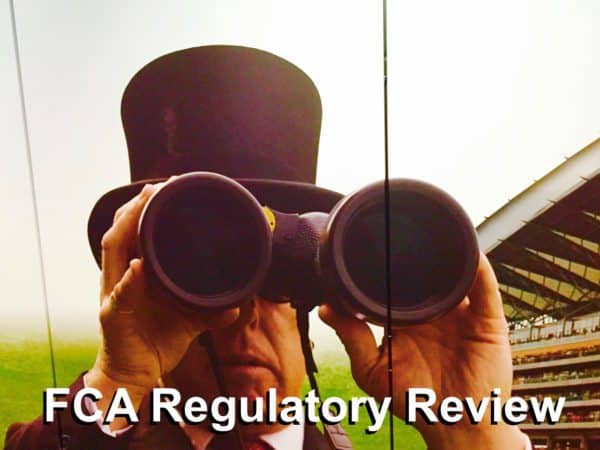
The Financial Conduct Authority (FCA) will look to ensure that consumers are sufficiently protected against the risks inherent in crowdfunding while supporting innovation in the growing market in a forthcoming review of its regulation of the industry.
Crowdfunding rules were introduced by the FCA in 2014, and the UK regulator has now opened a call for input on a post-implementation review of the rules. The FCA has said it is considering applying new standards of disclosure in the crowdfunding market and placing new regulatory duties on platforms that facilitate peer-to-peer loans or investments.
The FCA is looking to balance two competing objectives in reviewing, and potentially amending, its rules in relation to crowdfunding. It is keen to firstly guarantee that customers are appropriately protected – which may lead to more prescriptive rules and guidance regarding the degree of disclosure which crowdfunded platforms are required to provide, and the amount of verification or vetting they are expected to undertake. On the other hand, the FCA does not wish to be seen as cutting off a growing source of investment for innovative companies and start-ups who would otherwise struggle to access mainstream finance.
Standards of disclosure
 In the wake of a number of recent high-profile equity crowdfunding failures it seems likely that investment-based crowdfunding platforms will end up shouldering a greater burden of responsibility when it comes to ensuring that investors have sufficient information to form a reasonable judgement on the relative merits of a particular investment, and that the investment opportunities they host are presented in a way that is clear, fair and not misleading.
In the wake of a number of recent high-profile equity crowdfunding failures it seems likely that investment-based crowdfunding platforms will end up shouldering a greater burden of responsibility when it comes to ensuring that investors have sufficient information to form a reasonable judgement on the relative merits of a particular investment, and that the investment opportunities they host are presented in a way that is clear, fair and not misleading.
Investment-based and loan-based crowdfunding platforms are subject to different FCA regulations, although the same disclosure requirements currently apply to each of the regulated activities. However, the FCA has outlined that it has plans to “review disclosure standards” in relation to loan-based crowdfunding after highlighting “potential concerns about how firms are presenting information to investors.”
“It is, for example, quite difficult to find clear information on default rates on platform websites or to understand how the likelihood of default differs depending on when a loan was originated (i.e. default rates by vintage),” the FCA said. “Such disclosures could make trends in underwriting standards more transparent to investors.”
The regulator has asked for feedback from the industry on the standards of disclosure on loan-based crowdfunding platforms, as well as having plans to carry out a review of disclosure standards for investment-based crowdfunding.
If the results are found to not currently deliver adequate standards of consumer protection, the FCA has said that it will consider a “full range of options, including taking supervisory or enforcement action with specific firms or changing the rules to introduce additional requirements, and potentially, mandatory disclosures of information and risk warnings.”
Based on the outcome of the review, the FCA has said that they will take into consideration:
- Whether to mandate additional disclosures, to help potential investors better understand the risks. For example, by setting out how many businesses that raised funds have since failed and how many have had successful pay-outs.
- Whether to require firms, when setting out the money raised, to only include money contributed on the platform from persons unconnected to the business.
- Whether to subject investment-based crowdfunding platforms to new due diligence standards.
The FCA has outlined that it wants to ensure investors have sufficient protection against the risk of losing their money when businesses seeking funding through platforms fail, and that financial crimes risks are also being sufficiently mitigated.
“It appears that some businesses that successfully raise capital fail shortly afterwards,” the FCA said. “While such failures are likely for the young businesses raising capital on the platforms, we are concerned about the potential for investors to be exposed to risks they are not well placed to assess in advance.”
“As part of the post-implementation review, we will further analyse the due diligence processes employed by platforms and the additional analysis undertaken by investors. If we find that investors are not in a position to protect their own interests, we may consider the feasibility of minimum due diligence standards. For example, we could consider requiring business plans to be reviewed by, an appropriate third party.”
Crowdfunding isn’t going anywhere and if anything, has cemented its place in the market more. Companies are continuing to make use of crowdfunding platforms and see Brexit as an opportunity. British currency exchange app, Revolut, has just broken the UKcrowdfunding record with over £12 million pledged in seven days.
According to FCA figures, approximately £2.7 billion was invested on regulated crowdfunding platforms in 2015, up from £500 million in 2013. There are now more than 100 platforms either operating in the crowdfunding market or seeking authorisation.
 Thomas Howard is a financial services regulatory lawyer with experience in both contentious and non-contentious regulatory work. Thomas joined Pinsent Masons from the Financial Conduct Authority (FCA), where he was involved in the implementation of the FCA’s consumer credit regime. In addition to his FCA experience, he has expertise in payment services, crowdfunding, private and retail banking, financial promotions, regulatory perimeter issues and defending FCA enforcement action.
Thomas Howard is a financial services regulatory lawyer with experience in both contentious and non-contentious regulatory work. Thomas joined Pinsent Masons from the Financial Conduct Authority (FCA), where he was involved in the implementation of the FCA’s consumer credit regime. In addition to his FCA experience, he has expertise in payment services, crowdfunding, private and retail banking, financial promotions, regulatory perimeter issues and defending FCA enforcement action.

